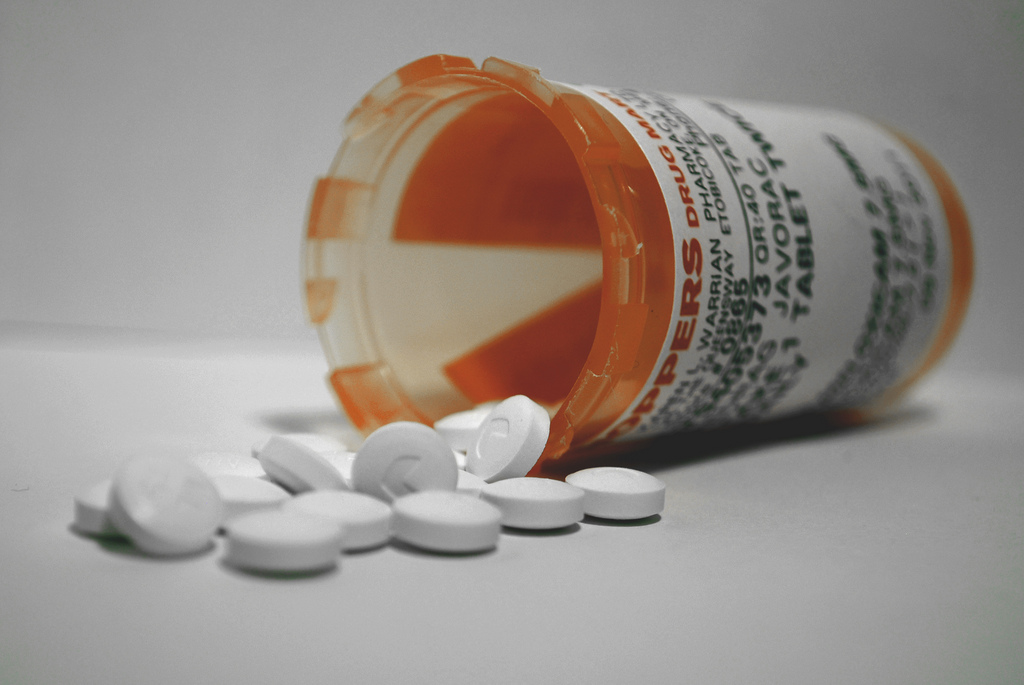by Dr. Craig A. Maxwell
Non-Steroidal Anti-inflammatory Drugs (NSAIDS) are among the most over-used and misunderstood drugs on the market. Although quite effective in temporarily relieving pain, they do nothing to address its underlying cause. Furthermore, I believe NSAID dangers far outweigh any benefits they may provide.
Understand NSAID risks and discover what to take instead.
1. Atrial Fibrillation
Non- aspirin NSAID pain relievers have been shown to increase your risk of atrial fibrillation (the most common type of heart arrhythmia)[1. http://www.ncbi.nlm.nih.gov/pubmed/?term=BMJ+Open+2014%3B4%3Ae004059+doi%3A10.1136%2Fbmjopen-2013-004059++++++Epidemiology++Non-steroidal+anti-inflammatory+drugs+and+the+risk+of+atrial+fibrillation%3A+a+population-based+follow-up+study] by a startling 75%. AF accounts for 20% of all strokes and a 50% increase in the risk of heart failure. Atrial fibrillation also accounts for increased incidents of anxiety and depression.
2. Bleeding Stomach Ulcers
NSAID pain relievers provide relief from inflammation and pain by blocking two critical cyclooxygenase (COX) enzymes, which are responsible for producing prostaglandins: COX-1 and COX-2. Some NSAIDS block both; others are selective and block only COX-2, resulting in less GI upset and ulcers. These prostaglandins are essential for proper blood-clotting, induction of fever, and protection of the stomach lining. When these prostaglandins are continually suppressed, the lining of your stomach is vulnerable to ulceration and gastrointestinal bleeding.
3. Erectile Dysfunction
The Journal of Urology published a study of 80,000 men between the ages of 45 and 69. The research revealed that men who took NSAIDs three times a day for a period of three months were more than twice as likely to suffer from erectile dysfunction as compared to men who did not use these drugs regularly. The study carefully considered other factors such as age, weight, diabetes, obesity, and cholesterol levels but despite this, men who took NSAIDs regularly were still up to 1.4 times as likely to have ED.
4. Miscarriage
Women who are trying to conceive should take care to avoid NSAID pain relievers. Several studies[2. http://www.bmj.com/content/327/7411/368] have revealed that regular use of the drugs, especially around the time of conception and during the first trimester, had an 80% increased risk of suffering a miscarriage.
5. Birth Defects
According to the North American Journal of Medical Sciences[3. http://www.ncbi.nlm.nih.gov/pmc/articles/PMC3296322/], NSAID pain relievers appear to have strong teratogenic effects on an unborn child. When NSAID pain relievers are used late in pregnancy, they increase the risk of birth defects such as congenital heart defects, kidney toxicity, intracranial hemorrhages, and cleft palate and lip.
6. Kidney Disease
Habitual use of NSAID pain relievers have been linked to chronic interstitial nephritis and acute kidney failure. When kidney failure is sudden, oftentimes, discontinuation of NSAIDs is enough to trigger spontaneous recovery. This risk rises significantly in patients who use these drugs for chronic pain conditions.
7. Poor Healing of Fractures
If you have or are at risk for osteoporosis, I recommend avoiding NSAID pain relievers, especially after a simple or compound break. After an injury, inflammatory prostaglandins are critical to successful healing. Use of NSAID pain relievers within the first two weeks of a break can significantly impair this healing and increase risk of chronic pain.
What to Take Instead of NSAID Pain Relievers
NSAID pain relievers aren’t your only choice when it comes to treating your chronic pain.
Here are 7 natural pain relievers I recommend to my patients:
- Cayenne Pepper
Cayenne pepper can be taken in capsule form as a mild anti-inflammatory and safe pain reliever. Cayenne works by inhibiting something called ‘substance P’, which delivers pain messages from your body to your nervous system. When this compound is blocked, pain signals can no longer reach your brain and you experience relief.
- Magnesium
I found that 85% of my patients were severely deficient in this essential mineral when they first came to see me. Magnesium relieves pain naturally by relaxing your muscles and inhibiting the excessive stimulation of a pain-carrying neurotransmitter called NMDA. I recommend my Diamond Nutritional’s Chelated Magnesium for maximum absorption and pain-relieving benefit.
- Boswellia
Boswellia blocks the over-production of cytokinetic activity in damaged tissues and increases blood circulation to speed healing. Unlike NSAID pain relievers, which inhibit prostaglandins, this natural herb modulates the pro-inflammatory enzyme 5-lipoxygenase (5-LOX), which provides effective pain relief without the dangerous side effects.
- Skullcap Root Extract
Skullcap root extract is a powerful antioxidant, which safely inhibits prostaglandin 2, without interfering with normal gastrointestinal function. In addition to providing pain relief, skullcap root extract eases the anxiety and muscle tension associated with chronic pain.
- Bee Propolis Extract
Bee propolis extract contains caffeic acid phenethyl ester (CAPE), which acts as a powerful anti-inflammatory, antioxidant, and immune booster. Men with prostate inflammation have found great relief in the use of this particular supplement.
- Turmeric Root Extract
Turmeric root extract is one of the most powerful natural anti-inflammatory spices known to man. The pharmacologically active component of turmeric, curcumin, limits the action of lipoxygenase and cyclooxygenase impeding enzymes in inflammatory pathways. Turmeric can be taken entirely on its own for pain relief but offers more powerful benefits when combined with bee propolis and skullcap.
- Graminex G-60
Graminex G60 pollen extract is a source of 10 essential amino acids, non-essential amino acids, and antioxidants. In vitro animal studies have shown that Graminex G60 provides anti-inflammatory properties. It has also been shown to relax smooth muscles, easing tension and pain.
My Diamond Nutritional’s Inflamments Formula contains a synergistic blend of four of the ingredients listed above. It is designed to work in harmony to bring your body back in balance. While some manufacturers use unstandardized turmeric with fluctuating levels of curcumin, our formula includes 850 milligrams of standardized turmeric, guaranteed to contain 95% curcumin.
Chronic pain affects millions of people. If you’re one of them and have been using a combination of over-the-counter and prescription pain relievers, the natural alternatives listed above can help relieve your pain without unwanted side effects.
I also offer natural health consultations over the telephone wherever you are in the world. In the past 30 years, I have helped many just like you overcome chronic pain with a combination of dietary and lifestyle changes and natural supplements.







My wife and I have found that capsicum cream helps the arthritis pain just as effectively as ibuprofen without the side effects.
I’m a type 1 Diabetic and I am allergic to nsaids.
Just curious what is the best thing that I can take if I need to take something for inflammation anywhere?
That won’t mess with my blood sugar.
Hello Courtney,
Thank you for contacting me.
Many of my patients take Inflamments Formula for inflammation as mentioned in this article. This natural product has helped many over the years.
I believe you will find it quite helpful as so many have!
I wish you the best of health!
Dr. Maxwell